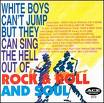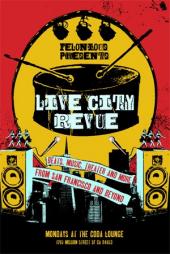 You know how sometimes you look at a once-familiar word, phrase or sentence and it suddenly seems incomprehensible, like it’s written in Swahili or Urdu?
You know how sometimes you look at a once-familiar word, phrase or sentence and it suddenly seems incomprehensible, like it’s written in Swahili or Urdu?
That happened to me a couple of nights ago as I was on the plane back from New York staring dumbly at the screen of a passenger seated a couple of rows ahead of me. My neighbor was watching an episode of Curb Your Enthusiasm on the in-flight TV service and Larry David was gesticulating in his usual over-the-top fashion at some other guy in front of a theater box office.
All of a sudden, the words “Will Call” came floating into view. Being a frequenter of box offices on an almost daily basis myself, I never pay much attention to these two small words. But seeing them on screen the other day gave me pause for thought. What on earth does “will call” actually mean? And where does the phrase come from? It makes very little sense to me in the context of a box office. A sentence like “I will call you tomorrow” uses the words in a normal way. If anyone out there can shed light on the etymology behind this phrase, I’d love to hear from you.
PS More travels ahead: Lies Like Truth is going on hiatus for ten days or so. I will be blogging again from March 9.


 Here’s a very quick roundup of some stuff I experienced on my trip to New York over the past few days:
Here’s a very quick roundup of some stuff I experienced on my trip to New York over the past few days: It’s a common assumption that if you’re a truly great singer, you can sing most anything. But this assumption of course is false. There are amazing lyrical tenors who can’t do Wagner. And incredible jazz singers who can’t sing folk music. For many experts, fach is everything and knowing your parameters as a vocalist is the best way to become excellent.
It’s a common assumption that if you’re a truly great singer, you can sing most anything. But this assumption of course is false. There are amazing lyrical tenors who can’t do Wagner. And incredible jazz singers who can’t sing folk music. For many experts, fach is everything and knowing your parameters as a vocalist is the best way to become excellent. What’s it like to feel like an outsider in your own country? I think a lot of people living here in the so-called “Republic of California” feel like this when they read about pro-life groups gaining headway in the mid-west or the outlawing of the teaching of the Big Bang Theory in southern schools.
What’s it like to feel like an outsider in your own country? I think a lot of people living here in the so-called “Republic of California” feel like this when they read about pro-life groups gaining headway in the mid-west or the outlawing of the teaching of the Big Bang Theory in southern schools. The fabulous British all-male a cappella vocal ensembl
The fabulous British all-male a cappella vocal ensembl Arts events aren’t a common occurrence at City Hall in San Francisco. But they should be.
Arts events aren’t a common occurrence at City Hall in San Francisco. But they should be. At what point in an arts organization’s growth does it need to have more than one person at the top? I ask this question in light of the departure of the
At what point in an arts organization’s growth does it need to have more than one person at the top? I ask this question in light of the departure of the  Unlike many people who write about music, I keep all of my audio collection on my laptop computer, a MacBook air. The main advantages of doing this are that I have my entire music collection at my fingertips wherever I go, and I save a lot of shelf space that would otherwise be taken up with CDs gathering dust. I also love buying music online – it’s so quick and easy – and these days, you can find a surprising amount of unusual stuff via digital download.
Unlike many people who write about music, I keep all of my audio collection on my laptop computer, a MacBook air. The main advantages of doing this are that I have my entire music collection at my fingertips wherever I go, and I save a lot of shelf space that would otherwise be taken up with CDs gathering dust. I also love buying music online – it’s so quick and easy – and these days, you can find a surprising amount of unusual stuff via digital download.  American soprano Kiera Duffy is a rising star of the opera and concert stage. Since being a finalist in the 2007 Met National Council Auditions — and as such was featured in Susan Froemke’s documentary about the major opera competition, The Audition — she has gone on to great things. In 2008, she won a Sullivan Foundation grant and has performed with the New York Philharmonic and the Los Angeles Philharmonic as well as at Tanglewood and Carnegie Hall. Kiera took some time out of her busy schedule to pen her thoughts for lies like truth about The Audition‘s impact on her career…
American soprano Kiera Duffy is a rising star of the opera and concert stage. Since being a finalist in the 2007 Met National Council Auditions — and as such was featured in Susan Froemke’s documentary about the major opera competition, The Audition — she has gone on to great things. In 2008, she won a Sullivan Foundation grant and has performed with the New York Philharmonic and the Los Angeles Philharmonic as well as at Tanglewood and Carnegie Hall. Kiera took some time out of her busy schedule to pen her thoughts for lies like truth about The Audition‘s impact on her career… It’s official: Monday is the new Saturday and last night’s escapades in San Francisco are proof of this fact.
It’s official: Monday is the new Saturday and last night’s escapades in San Francisco are proof of this fact. Why are arts organizations so obsessed with anniversaries? Every day it seems, some museum, presenter, dance troupe, alternative arts space or theater company is celebrating a milestone birthday, be it 25, 50 or 75 years with a retrospective or special series of events of somesuch. But to what extent are anniversaries really worth observing from an artistic perspective? Or are they merely crutches for programming, pegs to attract media coverage or excuses for amping up fundraising efforts?
Why are arts organizations so obsessed with anniversaries? Every day it seems, some museum, presenter, dance troupe, alternative arts space or theater company is celebrating a milestone birthday, be it 25, 50 or 75 years with a retrospective or special series of events of somesuch. But to what extent are anniversaries really worth observing from an artistic perspective? Or are they merely crutches for programming, pegs to attract media coverage or excuses for amping up fundraising efforts?